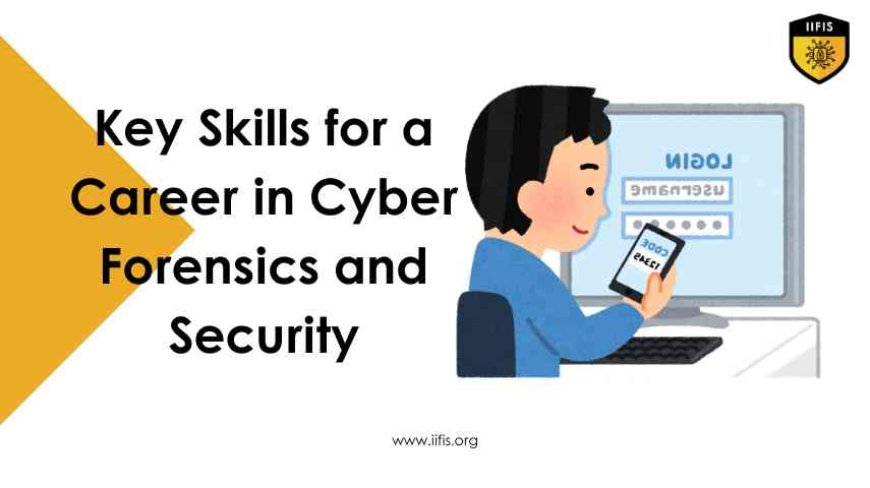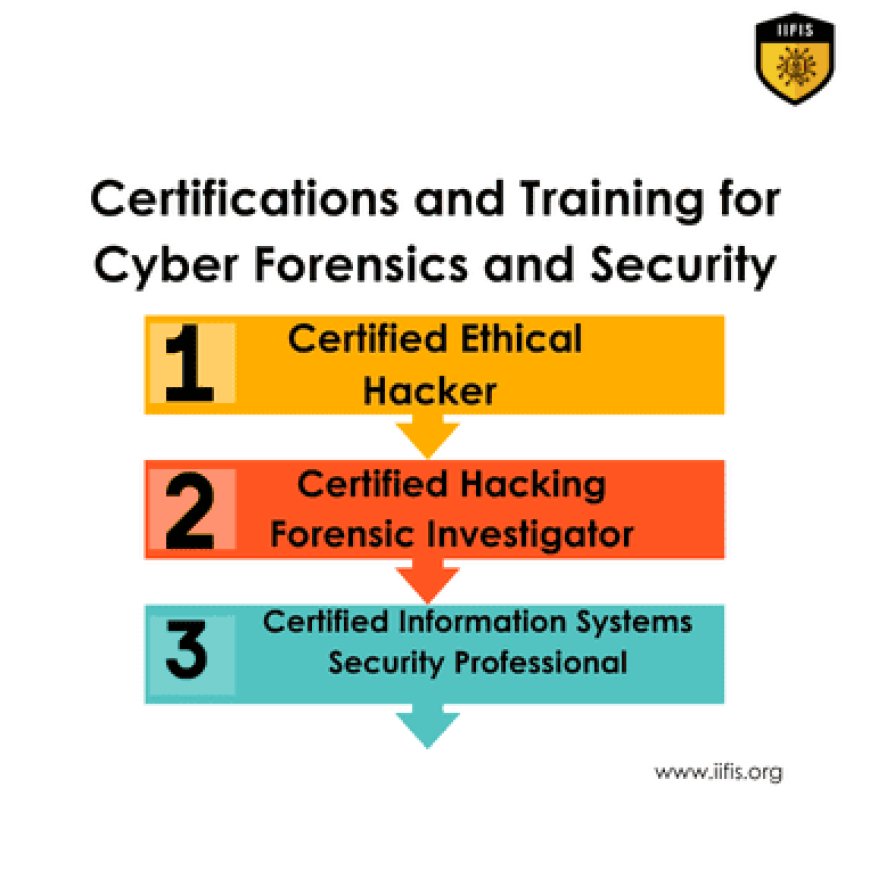Key Skills for a Career in Cyber Forensics and Security
Discover essential skills for a successful career in cyber forensics and security. Learn about technical expertise, investigative abilities, and problem-solving techniques needed to excel in this dynamic field.

A career in cyber forensics and information security requires a unique blend of technical expertise and analytical skills. As cyber threats become more advanced, organizations need professionals who can investigate violations, recover digital evidence, and secure sensitive information. Key skills such as knowledge of network security, proficiency in digital forensics tools, and a strong understanding of cybersecurity protocols are essential for success in this field. Whether you’re looking to start your career or enhance your current role, mastering these skills will position you as a valuable asset in protecting against cybercrime and safeguarding digital assets.
Cyber forensics and security refer to two interconnected fields that focus on protecting and investigating digital environments.
Cyber Forensics
Cyber forensics, also known as computer forensics or digital forensics, is the process of collecting, analyzing, and preserving digital evidence in cases of cybercrime, data breaches, or illegal activities involving computers, networks, or digital devices. The goal of cyber forensics is to trace attacks, recover data, and identify the criminals while ensuring the integrity of the evidence for legal proceedings. Common activities include recovering deleted files, analyzing network traffic, and examining digital devices to find evidence of tampering or illegal activity.
Cyber Security
Cyber security focuses on protecting networks, systems, and data from unauthorized access, attacks, or damage. It involves implementing measures to prevent cyber threats such as hacking, malicious software, phishing, and data breaches. Cybersecurity professionals work to safeguard sensitive information, maintain the integrity of digital systems, and ensure that data remains secure from cybercriminals. This field encompasses areas such as encryption, firewalls, antivirus protection, and network monitoring.
Together, cyber forensics and security work to both prevent cybercrimes and respond to incidents, ensuring digital environments are protected and investigations can be carried out when breaches occur.
Analytical and Investigative Skills for Cyber Forensics and Security
-
Attention to Detail: Success in cyber forensics hinges on the ability to meticulously examine digital evidence and detect subtle anomalies. This skill is crucial for uncovering hidden traces left behind by cybercriminals.
-
Problem-Solving: Cyber security incidents require swift and effective responses. Strong problem-solving skills enable professionals to formulate strategies that address security breaches and mitigate threats, minimizing damage to systems.
-
Data Analysis: Cyber forensics involves using data to trace attacks, identify suspicious patterns, and understand malicious behaviors. By analyzing vast amounts of data, professionals can identify the origin of attacks and predict potential future threats.
Legal and Ethical Knowledge for Cyber Forensics and Security
-
Cybersecurity Laws and Regulations: A strong understanding of laws related to cybercrime, data protection, and evidence handling is essential. Professionals must be well-versed in legal frameworks like the GDPR, HIPAA, and various cybercrime laws to ensure compliance and admissibility of digital evidence in court.
-
Ethical Hacking: Ethical hacking, or white-hat hacking, involves using hacking skills to identify and fix security vulnerabilities before they can be exploited. Cyber forensics and security experts often use these skills to test systems, ensuring that networks and data remain secure while upholding ethical standards in their practices.
Soft Skills for Cyber Forensics and Security
-
Communication: Cybersecurity and forensics professionals must be able to convey complex technical information to non-technical stakeholders. Clear communication is key when reporting findings, explaining vulnerabilities, and recommending solutions to executives, clients, or law enforcement.
-
Teamwork: Successful cybersecurity efforts require collaboration with diverse teams, including IT specialists, law enforcement, and legal experts. Strong teamwork skills ensure that all parties work together effectively to investigate incidents and protect critical systems.
-
Adaptability: The cyber world is constantly evolving, with new threats and tools emerging regularly. Professionals in this field must stay adaptable by continuously learning and updating their knowledge of the latest trends, technologies, and best practices in cybersecurity.
Certifications and Training for Cyber Forensics and Security

1.Key Certifications: Earning relevant certifications is crucial for advancing a career in cyber forensics and security. Notable certifications include:
-
-
Certified Ethical Hacker (CEH): Validates skills in identifying and addressing security vulnerabilities through ethical hacking.
-
Certified Hacking Forensic Investigator (CHFI): Focuses on the skills needed for investigating cybercrimes and collecting digital evidence.
-
Certified Information Systems Security Professional (CISSP): Provides a broad understanding of security practices, management, and technical aspects.
-
-
Importance of Continuous Learning: The field of cyber forensics and security is dynamic, with new threats and technologies constantly emerging. Continuous learning through specialized courses and additional certifications is essential for staying current with industry developments, enhancing expertise, and maintaining a competitive edge in the field.
A successful career in cyber forensics and security demands a mix of technical, analytical, and soft skills. Key areas include network security, cryptography, and digital forensics, alongside problem-solving and clear communication. Earning certifications like CEH, CHFI, and CISSP is crucial for career advancement. Continuous learning through specialized courses enhances your skills and keeps you current.
Consider exploringInternational Institute for Information Security(IIFIS). for valuable certifications and training that can boost your career in cyber forensics and security.
























